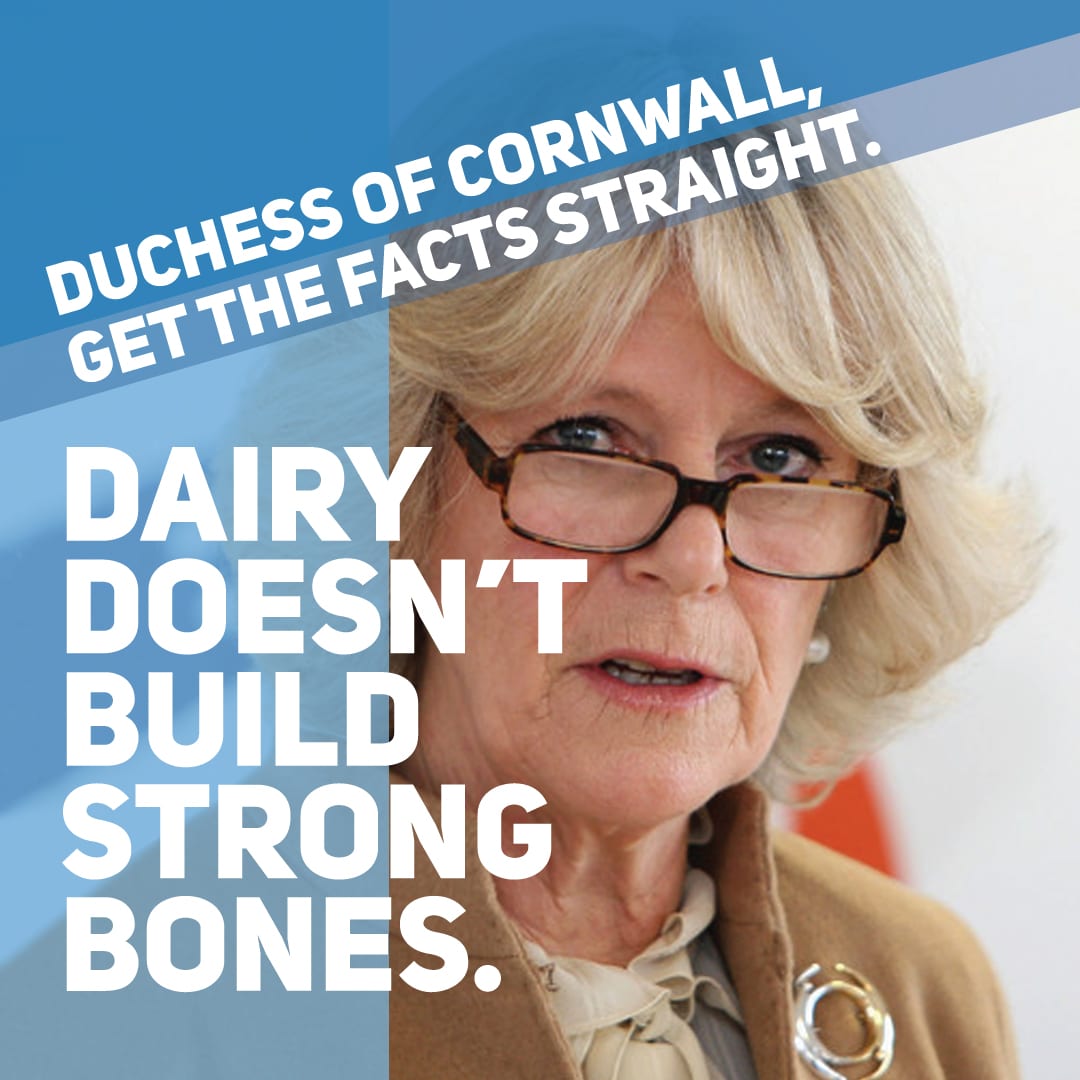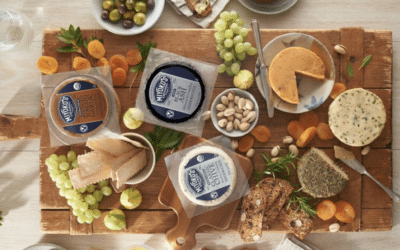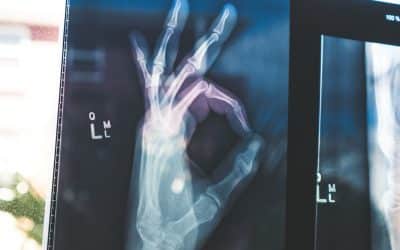It is all too common and remarkably convenient to ignore potential health risks—until it is too late. While preventive medicine is slowly beginning to gain in popularity, the general practice is to not worry about something until we are “suddenly” faced with it. High cholesterol, heart disease, osteoporosis—these are simply concerns for “old people.” The Duchess of Cornwall expressed this observation while announcing the official rebranding of the Royal Osteoporosis Society (formerly the National Osteoporosis Society). The Duchess has been heavily involved in this organization for over 20 years since her mother’s passing from osteoporosis in 1994. While her intention was honorable, she also warned junior generations against the harms of “ridiculous diets” that eliminate dairy. Unfortunately, this misled advice could put these populations at jeopardy for brittle bones.
The Duchess is not alone in assuming that dairy builds strong bones. In most Western countries, the idea of dairy as a health food is ingrained into the culture. From a young age, we are constantly battered by ads that promote the calcium in dairy foods, claiming this food alone is essential to “growing big and strong.” It is understandable that the Duchess has lashed out against nondairy diets, but her judgment is simply misplaced.
Critical care physician Dr. Milton Mills likens drinking milk for calcium to smoking a cigarette for its oxygen content. He explains, “Dairy products are some of the most unnatural and unhealthy things humans eat. They have been promoted by the dairy industry as good for bone health, but the science and research show the exact opposite. People in countries that consume the most dairy products have the highest risk and rates for osteoporosis.”
Dr. Mills supports this claim by referencing Dr. Colin Campbell, a highly regarded American researcher, professor, and author of The China Study. “According to Dr. Colin Campbell,” Dr. Mills expounds, “the casein protein in milk causes a metabolic acidosis that results in calcium being leached from our bones to correct. Over a lifetime, this can result in severe calcium loss and osteoporosis.”

Recent research studies back this up. A 2014 study conducted by the British Journal of Medicine followed 100,000 people for 20 years to determine the effects of dairy in relation to bone health. Researchers found that women who regularly drank three or more glasses of milk a day had a 60 percent higher rate of hip fracture and double the risk of death, compared to those who drank less than three glasses. The severe death toll is related to the fact that one-third of individuals with hip fractures never walk again. To date, this is one of the largest dairy studies in history, and the osteoporosis communities could serve to benefit from its conclusion. Knowing that dairy could, in fact, increase the risk of osteoporosis, it is essential that those promoting awareness and prevention of this disease rethink their tactics and avoid suggesting dairy as an essential component to strong bones.
Of course, the Duchess is absolutely correct in her emphasis on nutrition and moderate exercise. Calcium is needed to maintain a healthy skeletal system, but this nutrient is not solely available in dairy. Many plant foods contain significant amounts of calcium. What’s more, calcium is often more bioavailable in plants than in cow’s milk, meaning the body can absorb more of it. The calcium found in cow’s milk is about 30-35 percent bioavailable, whereas the calcium found in tahini, almonds, bok choy, and kale is 50 percent or higher. Exercise is also vital in keeping osteoporosis at bay. Regular weight-bearing exercise and resistance training has been shown to be the most effective form of movement to maintain bone health. A combination of balanced nutrition and moderate exercise is the key to preventing osteoporosis, and dairy has no place in this equation.
There is no doubt that fad dieting is rampant among the social media generations, and the Duchess is quite accurate in her concern for those who will do almost anything to be one of the “Skinny Lizzies.” However, simply eliminating dairy from one’s diet—and replacing it with nutritionally equivalent whole foods—is not extreme nor ridiculous. A balanced, calorically adequate dairy-free diet is a strong preventive measure against osteoporosis, and the medical experts and research support this claim.








